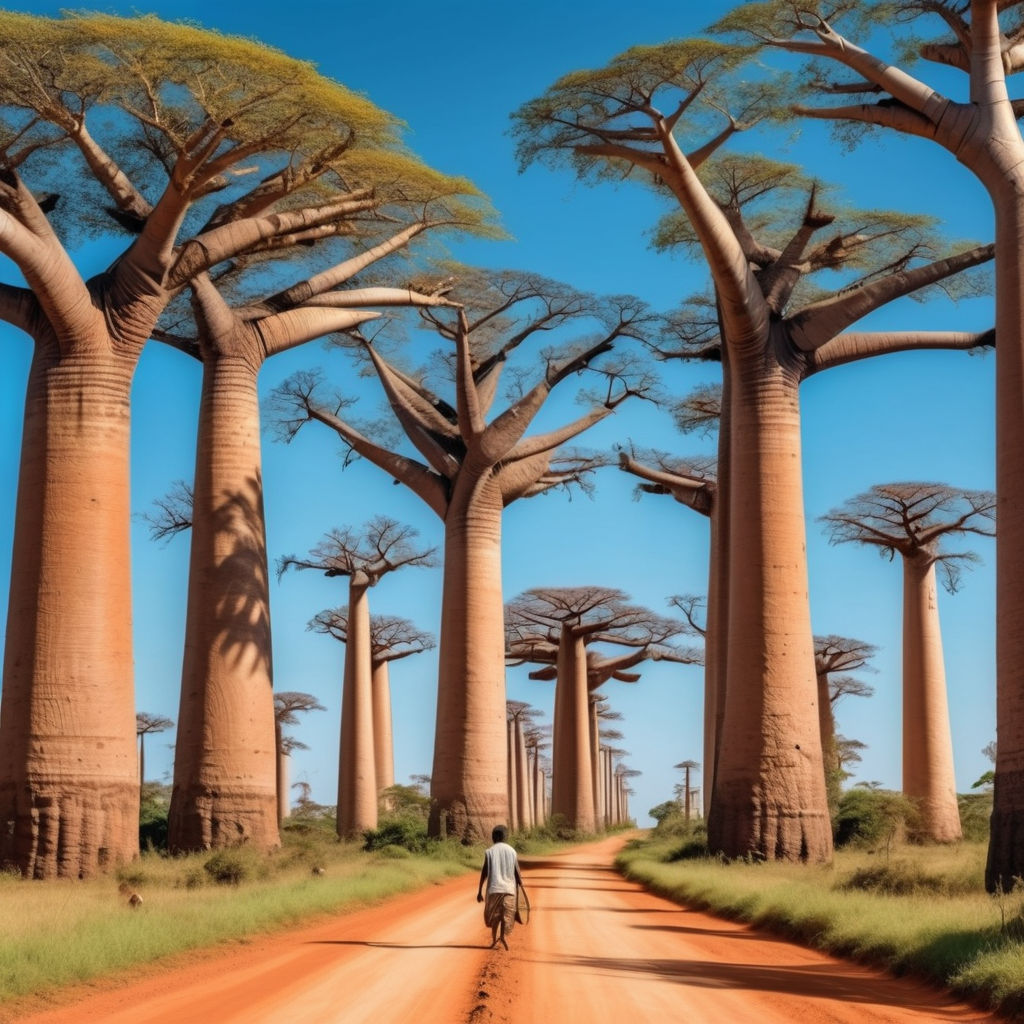Introduction to Madagascar: Culture, Biodiversity, and Cross-cultural Engagement
Explore Madagascar's Rich Cultural Heritage and Unique Biodiversity

Introduction to Madagascar
Madagascar, officially known as the Republic of Madagascar, is an island nation located in the Indian Ocean off the southeastern coast of Africa. It is the fourth largest island in the world and is known for its unique biodiversity, which includes an array of flora and fauna not found anywhere else on Earth. The capital city, Antananarivo, is the political, economic, and cultural hub of the country. Other major cities include Toamasina, Antsirabe, and Mahajanga. Madagascar boasts a rich cultural heritage that reflects its diverse ethnic groups, including the Merina, Betsimisaraka, and Sakalava, among others. This diversity is evident in the country’s music, dance, language, and traditional crafts. Malagasy music, with its unique rhythms and instruments like the valiha (a bamboo tube zither), plays a significant role in the cultural life of the people. The country's cuisine, featuring dishes like romazava (a meat and greens stew) and ravitoto (crushed cassava leaves), reflects its agricultural roots and the influence of Indian, French, and African culinary traditions.
Cross-national and Cross-cultural Understanding
Madagascar’s people generally perceive and engage with other cultures with curiosity and openness, influenced by the island’s history of trade and colonization. The Malagasy value cross-cultural understanding and actively participate in cultural exchanges, educational programs, and international partnerships that promote mutual respect and learning. Cultural exchanges are pivotal in fostering cross-cultural understanding in Madagascar. The country hosts various festivals and events that celebrate both local and international traditions. The Donia Music Festival in Nosy Be, for instance, attracts artists and audiences from around the world, promoting cultural exchange through music and dance. Additionally, Madagascar’s membership in organizations like the African Union and La Francophonie facilitates cultural and educational exchanges. Educational programs in Madagascar emphasize the importance of global awareness and cross-cultural understanding. Schools and universities incorporate multicultural perspectives into their curricula, encouraging students to appreciate and respect diversity. The University of Antananarivo collaborates with international institutions to facilitate student and faculty exchanges, enriching the educational experience and fostering global connections.
Interactions and Social Dynamics
Typical interactions between Malagasy people and foreigners are characterized by warmth, hospitality, and a strong sense of community. Social behaviors in Madagascar reflect a blend of traditional customs and contemporary influences, emphasizing respect for others, politeness, and communal living. Communication styles in Madagascar are generally informal and friendly. Malagasy is the official language, but French is also widely spoken, especially in urban areas. This bilingualism facilitates interactions with tourists and expatriates, making it easier for them to integrate into the local community. Cultural norms in Madagascar place a strong emphasis on respect for elders, family values, and community involvement. These norms create a welcoming and inclusive atmosphere for foreigners, who often find it easy to adapt to the local way of life. Public displays of affection are generally modest, reflecting the country’s traditional values, but social gatherings and communal activities are vibrant and inclusive.
Views on Dating and Relationships
Attitudes towards dating and relationships with foreigners in Madagascar are generally open and accepting, though influenced by cultural and traditional norms. Malagasy people recognize the opportunities for cultural exchange and personal growth that such relationships can bring. However, traditional customs and values play a significant role in shaping these views. Family involvement is significant in relationships in Madagascar, with elders often playing a crucial role in the approval process. Traditional customs emphasize respect, patience, and the gradual building of trust in relationships. While modern dating practices influenced by global trends are becoming more common among younger generations, traditional values still hold sway in many communities.
Marriage and Family
Marrying a foreigner in Madagascar involves navigating both legal and social considerations. Legally, the country has clear regulations governing marriage, including residency requirements and the need for proper documentation. Socially, cross-cultural marriages are generally accepted, though couples may face challenges related to cultural differences and integration. Familial acceptance is a key factor in cross-cultural marriages. Malagasy families can be protective, and gaining their approval is often essential for the relationship's success. However, the diverse cultural landscape of Madagascar means that many families are already familiar with and accepting of different cultural backgrounds, which can facilitate smoother integration for foreign spouses. Trends in cross-cultural marriages reflect Madagascar’s open and inclusive society. Many Malagasy who travel abroad for education or work form relationships with individuals from various cultures, bringing back diverse customs and traditions that enrich the local community.